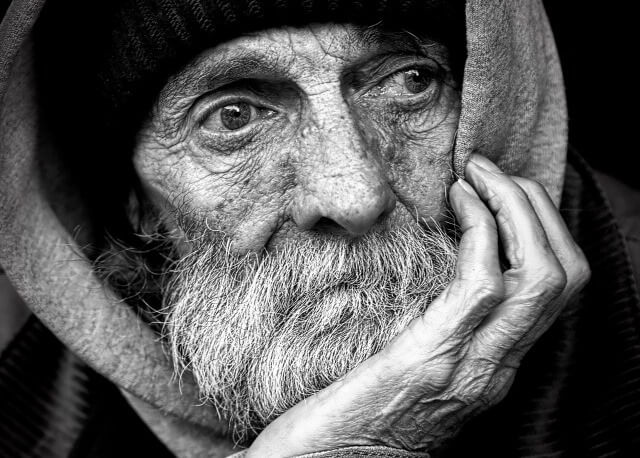
The Sages highly praised the mitzvah of bikur cholim, visiting the sick.
A central aspect of this mitzvah is encouraging them
and praying for their recovery. However, on Shabbat we are
instructed not to pray for the sick; such
prayers are inappropriate to the general
atmosphere of Shabbat. Rather, the Sages taught:
One who visits the sick on Shabbat should say: It is Shabbat, when we may not cry out [and pray]; and healing will soon come. (Shabbat 12a)
Why is Shabbat different?
Two Ways to Respond
When faced with challenges and crises, the person of faith may respond in one of two ways.
The first response begins with emotional turmoil. Where is God’s protection? Why is this happening to me? The questions lead us to examine and re-evaluate our lives. “If you see that suffering has befallen you,” the Sages taught, “you should examine your actions” (Berakhot 5a).
It is easy to become complacent and overconfident, to think that we have everything under control. Knowing that illness can suddenly turn our lives upside down should soften our stiff-necked obstinacy and curb our misguided schemes.
A major benefit of suffering is that it stirs us to turn to God. This is a natural human response: crisis leads to sincere prayer, reflection, and teshuvah. Often, after illness has made its desired impact, and the sick (as well as friends and relatives) have brought their hearts closer to God, we see health restored.
Stronger Faith and Bitachon
There is a second, less common, response to tragedy. It can be a time to probe one’s faith, to deepen one’s trust in God. To accept the fact that we cannot truly know why this is happening.
When Moses petitioned God to know His ways, to understand how God governs the world, he was told, “A person cannot have a vision of Me and still live” (Exod. 33:20). “For My thoughts are not your thoughts, neither are your ways My ways” (Isaiah 55:8).
We must recognize that we cannot truly know what is the ultimate good. Often what appears to us to be bad is in fact for the best.
If successful, some are able to attain the level of faith where they only seek the realization of God’s will in the world. This is the level of the pious, who wholeheartedly put their faith in God. They trust that God watches over them. Even if they suffer, they rely on God that also this is for the best, for them and society.
There is, however, a downside to this response: it dissuades one from praying for Divine assistance. Why pray when I am at peace with God’s decree? For most people, the correct approach is the first one: to accept our natural desire for health and life, and address the situation by rectifying our actions and drawing near to God. Only the lofty pious, whose hearts are already pure, may follow the path of complete reliance on God’s will. For them, challenges such as illness are an opportunity to strengthen their faith and accept God’s providence.
The Holy Serenity of the Sabbath
During the weekdays, the appropriate approach for most people is the path of penitence and heartfelt prayer. On Shabbat, however, we experience life on a higher dimension; the soul is elevated and the heart purified. The Sages taught that the holiness of Shabbat precludes arousing our emotions in tearful prayer. We should be like the lofty pious, accepting God’s decree and bolstering our trust in His goodness.
One should not think, however, that placing complete trust in God means that we relinquish all hope in restoring our health. This spiritual path is also a way in which suffering accomplishes its goal. Just as prayer and teshuvah hasten healing, the same is true for those who deepen their faith in God’s goodness. Thus, on Shabbat we encourage the sick, saying, “Healing will soon come!”
(Adapted from Ein Eyah vol. III pp. 27-28 on Shabbat I:43)